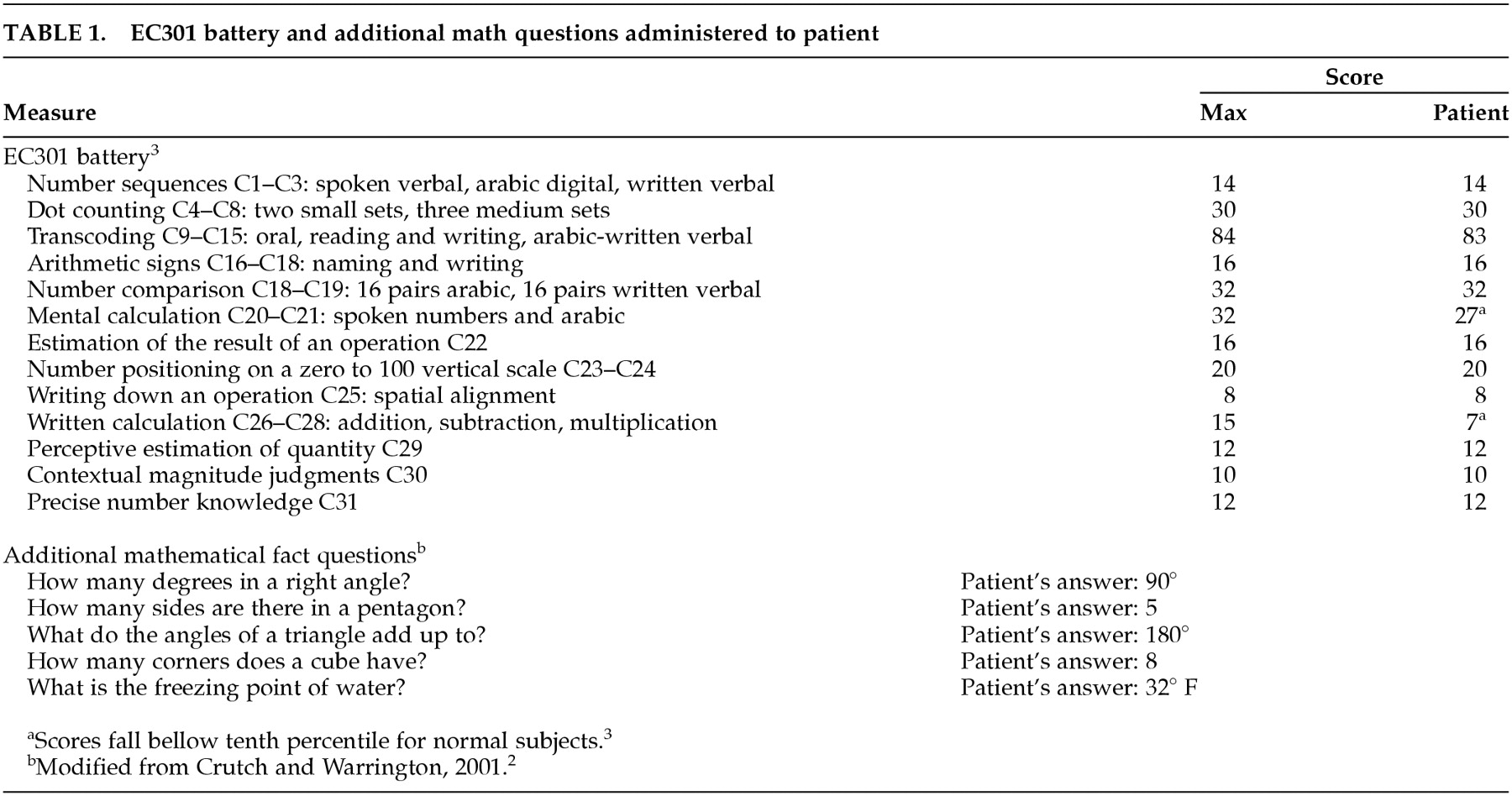SIR: Acalculia refers to impairments in mathematical abilities from brain injury.
1 Acalculia can result from language impairment, visuospatial difficulties, or a primary anarithmetia for mathematical operations.
1–3 Calculations also require working memory as a temporary online buffer necessary for complex computations. We report a patient with acalculia from a left thalamic stroke and analyze his deficits.
Case Report
A 61-year-old right-handed carpet salesman became acutely unable to figure out how to perform the calculations needed to determine the amount of carpet for a floor area. He denied trouble with other daily calculations, such as making change at the store, estimating quantities, or using a calculator. His history was significant for lacunar strokes, two myocardial infarctions, hypertension, hypercholesterolemia, and heavy smoking.
Except for his acalculia, his examination was mostly normal. He scored 29/30 on the Mini-Mental State Examination, missing one recall item. His digit span was 6 forward, but he was able to repeat only one digit backward and had difficulty on more complex serial reversal tasks. Tests of language, declarative memory, visuospatial construction, praxis, right–left orientation, finger naming, and alternate programs were all normal. Cranial nerves, gait, coordination, and sensory examinations were normal, but he had a slight right upper extremity pronator drift and his reflexes were brisker on the right with a right upgoing toe.
On magnetic resonance imaging, he had old lacunar infarcts in the right caudate head and the genu of the left internal capsule and a new lacunar infarct in the anterior aspect of the left anterior thalamus.
He underwent tests of his calculation ability. On 16 written problems, he made the following errors: 5+6=36, 26+17=53, 621−72= 541, 5×13=75, 78/13=5.5, and carrying-over errors in 42×126. On a word problem (18 books on two shelves, put twice as many on top shelf), he stated ”18 on the top and none on the bottom.” On the EC301 Battery (
Table 1),
1,3 he made errors in mental and written calculations but did well on all other subtests. The patient satisfactorily explained each individual step involved in calculating the sale of carpet but could not perform the actual series of steps.
Comment
Acalculia commonly results from disturbances in the left parietal cortex but can result from abnormalities in prefrontal and other locations.
1 Infarction in the territory of the left tuberothalamic artery can produce acalculia from involvement of the ventral lateral and dorsomedial thalamic nuclei with sparing of other nuclei,
4 similar to the findings in our patient.
We analyzed our patient's acalculia. There was no evidence of alexia or agraphia for numbers or other specific numerical problems. He could perform most simple mathematical operations, but he had difficulty in performing complex or multistep operations. Along with his initial difficulty with serial reversal and mental control tasks, his examination suggested a form of acalculia stemming from difficulty with working memory. Recent research has documented the role of working memory in performing multistep, complex calculations,
5 and lesions in the left thalamus, as well as dorsolateral frontal regions, could impair working memory.


